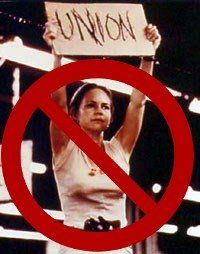

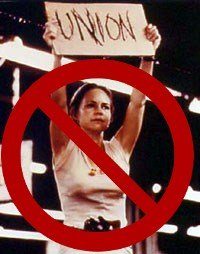 In 1978, California voters passed Proposition 13 – a ballot initiative that rolled back property taxes to 1975 levels and capped future increases at two percent. More destructively, it mandated that all future tax raises in the state be approved by the legislature by a two-thirds margin. The law presaged a wave of anti-taxation measures across the country that continues to define the political landscape we inhabit to this day. Ironically, while Prop. 13 was an effective carrier of the anti-taxation message, the rest of America soundly rejected the draconian policies Prop. 13 put into place to block the raising of tax revenues.
In 1978, California voters passed Proposition 13 – a ballot initiative that rolled back property taxes to 1975 levels and capped future increases at two percent. More destructively, it mandated that all future tax raises in the state be approved by the legislature by a two-thirds margin. The law presaged a wave of anti-taxation measures across the country that continues to define the political landscape we inhabit to this day. Ironically, while Prop. 13 was an effective carrier of the anti-taxation message, the rest of America soundly rejected the draconian policies Prop. 13 put into place to block the raising of tax revenues.
“The specifics of Prop. 13 were largely not adopted in other states,” explains Lenny Goldberg, Executive Director of the California Tax Reform Association. “Hardly any states enacted the two-thirds majority rule. And very few states treat taxes on commercial properties like Prop.
» Read more about: After Election Day: Two, Three, Many Prop. 32s »


(This opinion piece first appeared in today’s Los Angeles Times.)
The U.S. economy has turned a corner. The national unemployment rate hit a post-recession low of 7.8 percent in September. Rising consumer confidence, increasing home prices and other leading economic indicators confirm the trend.
Unemployment is still too high, but a focus on the number of jobs obscures a serious long-term crisis of declining wages and a shrinking middle class that is having a harder and harder time making ends meet. New jobs pay less, raises are rare and benefits even rarer. According to a National Employment Law Project study released in August, the majority of new jobs created in the last two years pay just $13.83 an hour or less. Nobel laureate economist Joseph Stiglitz recently said, “Increasing inequality means a weaker economy” for all of us.
» Read more about: Raising the Minimum Wage Is the Least We Can Do »
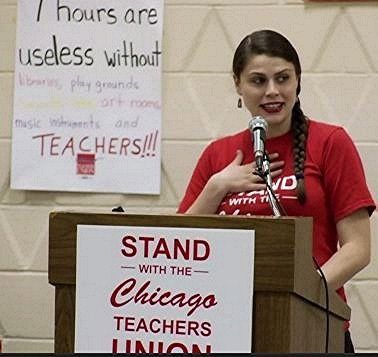

In September, 25,000 Members of the Chicago Teachers Union (CTU) stood strong on picket lines and flooded the streets of downtown Chicago in rallies, refusing to return to work until the school district and Mayor Rahm Emanuel came closer to their idea of fair in contract negotiations.
They prevailed. The teachers defeated merit pay, forced the district to hire 600 teachers and took care of laid-off workers. In doing so, they showed that teachers’ unions will not lie down, even as privatization encroaches. The teachers and unions also experienced an outpouring of support from activists and the general public.
How did CTU pull it off? What lessons are there to learn from the victory in Chicago?
A recent forum asked how CTU transformed its union in order to draw lessons for the future from the successful campaign. The forum was documented on video (posted above). Featured speakers are:
» Read more about: Chicago Teachers: How We Won Our Strike »


 Wells Fargo Bank and US Bank have chosen to celebrate Breast Cancer Awareness Month by trying to evict breast cancer survivors from their homes.
Wells Fargo Bank and US Bank have chosen to celebrate Breast Cancer Awareness Month by trying to evict breast cancer survivors from their homes.
Last week, Ana Casas Wilson — a wheelchair-bound woman with cerebral palsy and terminal stage-four breast cancer, and who has struggled for months to get Wells Fargo and US Bank to accept her money and stop foreclosing on her home of 40 years — received a final five-day notice to vacate from L.A. County Sheriff Lee Baca’s office. Wilson and her family briefly fell behind on her payments after she had to go into the hospital for a double mastectomy, as I described in an earlier post. She and her friends and supporters have launched a round-the-clock vigil at her home in a blue-collar suburb outside Los Angeles (8968 San Juan Ave., South Gate, CA 90280) to resist eviction, as the Los Angeles Times reported last week.
» Read more about: Foreclosures: Stop Cancer Survivor's Eviction! »
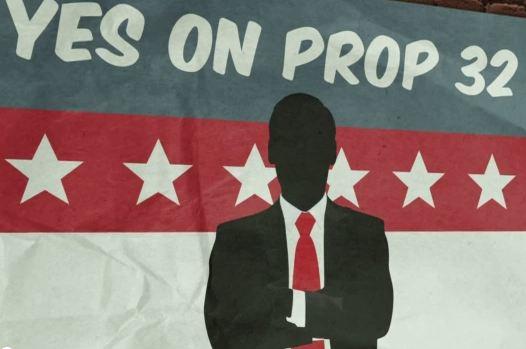

» Read more about: Proposition 32: "Corporations Know Best" »


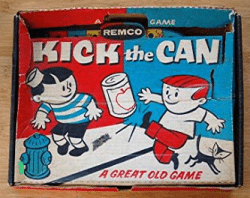 “Kick the can down the road” may be a politician’s mantra, but it’s certainly not what some Native Americans meant when they spoke of the Seventh Generation. The Iroquois thought that decision-making ought to consider the impact on children yet to come. Politicians, on the other hand, pick the least painful path now and let someone else deal with the consequences 30 years from now.
“Kick the can down the road” may be a politician’s mantra, but it’s certainly not what some Native Americans meant when they spoke of the Seventh Generation. The Iroquois thought that decision-making ought to consider the impact on children yet to come. Politicians, on the other hand, pick the least painful path now and let someone else deal with the consequences 30 years from now.
The Los Angeles City Council just kicked the can. Its members, at the urging of the Mayor, voted almost unanimously to change the pension program for new civilian city employees. This policy change only applies to new hires and exempts police, firefighters and the employees of the Department of Water and Power. The plan reduces new workers’ pensions by two-thirds, eliminates health-care support for their spouses and decreases take-home pay during years when the stock market isn’t performing well enough to sustain retirement investments.
» Read more about: Pensions: City Kicks a Can Down the Road »


“We’re Up to $60 Million”
It’s an unreasonably warm October day, and I’m milling about awkwardly with a handful of suits at a mixer in a small banquet hall at Newport Beach’s Pacific Club—which, according to its website, is the gathering place of choice for the “distinctive life-style of Orange County’s business and professional leaders.”
An incredible thirst suddenly overwhelms me, as I look down and see I’ve practically sweated through my cheap suit. I try my best to keep control of my decorum, but when a busser passes by with a lone Arnold Palmer on his tray, I snatch it greedily from the outstretched hands of another guest and suck the saccharine concoction down in one gulp.
The hot weather may be playing a small role in my odd behavior, but my discomfort is mainly due to the fact this is no ordinary mixer. I’ve successfully infiltrated one of the most powerful and secretive Republican organizations in the country: The Lincoln Club of Orange County.


A recent story in The New York Times, back in its business section, had important news about inequality: “Income Inequality May Take Toll on Growth.” A couple of economists at the IMF reported research (here) showing that, across many countries, periods of greater income inequality tend to be followed by slow-downs in economic growth.
This is, actually, old news. About 20 years ago the research literature already showed that inequality probably damped the economy (see pp. 126ff here). But this remains important to repeat – not just because reporting the baleful effects of inequality now has the imprimatur of the IMF, but also because so many people still resist the news; they insist instead on believing the opposite, that inequality stimulates the economy, to the benefit of everyone. And, of course, this insistence has political implications right now.
» Read more about: Growth Is the Price of Income Inequality »


Frying Pan News reporter Matthew Fleischer discussed Proposition 32 on KPFK’s Uprising program Monday morning, joining host Sonali Kolhatkar (left) and Jessica Parra-Fitch (center), who talked about Prop. 37’s attempts to get genetically modified food labeling on the books in California.
» Read more about: Matthew Fleischer Discusses Proposition 32 on KPFK »
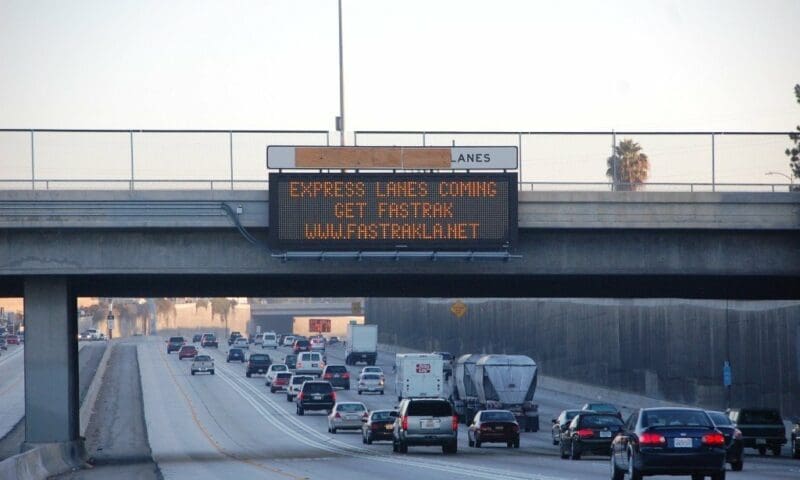

Starting on November 10, Los Angeles will begin a one-year experiment to convert High Occupancy Vehicle (HOV) lanes, better known as carpool lanes, to High Occupancy Toll (HOT) lanes on two major freeways. Toll lanes are not new to California drivers, but this is the first time we will see these lanes on L.A.’s busiest freeways.
The HOT lanes will allow lone drivers to access the current carpool lanes on the I-10 (beginning early 2013) and I-110 (November 10) freeways by paying a toll that changes based on the current level of traffic. Drivers who utilize carpools, van pools, buses and motorcycles will continue to access those lanes for free. (For more information on all the rules and details, check out Metro’s handy-dandy FAQ page.)
Metro argues that HOT lanes will reduce congestion in the regular lanes, and that all revenue from freeway tolls will go directly to fund improvements to public transportation and roads near the freeways where tolls are collected.
» Read more about: HOT Lanes Are Heating Up in Los Angeles »